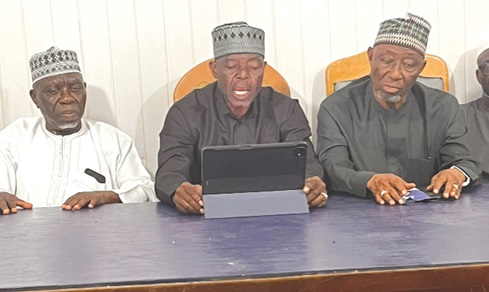The Ghana Hajj Agents Association (GHAA) has called for representation on the permanent Hajj Board, which is expected to replace the current interim task force.
It emphasised the need for a stronger partnership between the Hajj Board and the agents’ association to address logistical inefficiencies and bridge communication gaps.
At a press conference at the Hajj Village, the Secretary of the association, Mohammed Sadis, revealed that the future of Ghana’s Hajj operations depended on transparency, proper stakeholder engagement and visionary leadership.
“Good intentions alone are not enough; Ghana’s Hajj operations require systemic reform. The process must be guided by integrity, spiritual discipline and a clear focus on service. Hajj is not a business, it’s a sacred trust,” he said.
Presidential support
The association commended President John Dramani Mahama for reducing the Hajj fare from GH¢75,000 to GH¢62,000, describing the move as a relief for thousands of Ghanaian Muslims.
They also acknowledged the President’s decision to issue free Hajj tickets to all accredited agents, allowing them to travel with, and support pilgrims throughout the journey.
“This empowered us to care for our pilgrims, reduced stress, increased accountability, and changed the nature of the entire operation,” he said.
Pilgrimage operations
Despite these positive steps, the GHAA raised concerns over the organisation of this year’s Hajj, pointing to logistical problems, weak communication structures, and delayed emergency responses, exposing gaps in planning and execution.
It revealed that during previous Hajj seasons, when agents played a more active role, there was responsiveness to pilgrims’ needs, stressing that “had Hajj agents been more involved in decision-making, many of the problems that came up could have been avoided”.
Future hajj
The association further proposed that future Hajj operations should be anchored on early planning, clear timelines and competent staffing.
It also called for payment schedules to be announced at least four to six months in advance, and the need to increase Ghana’s Hajj quota to 10,000 to reflect rising demand.
In addition, the GHAA called for a review of accommodation arrangements in Mecca to ensure Ghanaian pilgrims were housed in compact and centralised locations, while also urging improvements in tent allocations at Mecca, as well as better logistics, sanitation and food distribution during pilgrimage.
The association further stressed the need for regular consultation with key stakeholders, including Hajj agents, civil society, health professionals, and religious leaders, to ensure a more inclusive and responsive system.
New Hajj Village
The association welcomed the President’s plan to construct a new Hajj Village, describing it as a major step towards improving preparation, documentation and pilgrim comfort.
It said such infrastructure would support efforts to raise the overall standard of service delivery.
“We are happy with President Mahama’s decision to build a new Hajj village for us, and this will help with the documentation and process of the Hajj to be smooth,” he said.
A member of GHAA, Imam Abass Abdul Karim Umar, also disclosed that there was a need for the association to have direct representation on the new board.
“We are the ones who walk through every nook and cranny of this country to mobilise pilgrims.
We have first-hand information about their needs,” he said.
He also said the association wanted a balanced representation so their voices and those of the ordinary pilgrims were heard.

